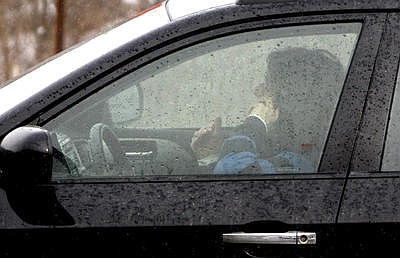Most of the chatter around the wind-down of the Tennessee General Assembly session has dealt with the passage of an education savings account bill.
Although that measure wound up somewhat differently from where it began (and which was discussed in this space on Friday), it was just one accomplishment of a rather bold legislative year under new Gov. Bill Lee.
In case you were looking elsewhere during the last several weeks of the session, here are a few things that occurred:
* Medicare block grants - Although the legislature approved a bill to allow the state to propose it get its federal Medicaid money through a first-in-the-nation block grant, no such thing can happen without federal approval. And if the feds do approve, the legislature once again must approve before a block grant system is implemented.
The idea is that the state, through the grant, would be freer in how it uses its Medicaid money for low-income people rather than through the funding formula currently used. We appreciate the legislature's willingness to experiment with how its gets federal money, assuming the block grant will allow people to be served better and more efficiently.
* Voter registration fines - The legislature, seeking to block the proliferation of incomplete and incorrect, last-minute voter registration forms, approved likely first-in-the-nation fines for submitting too many of such forms.
Although this in no way should suppress voting, as critics charge, we nevertheless felt it was an overreach that could have been corrected by education and ultimate suspension of the registration group if too many wrong forms were submitted rather than fines.
* Legalized sports gambling - By approving online sports gambling, the legislature will allow the state to capture some of the money currently going to other states that have approved the practice, or others that will approve it in the future.
While we believe too many people - many who can't afford it - will waste too much money gambling on sports, it behooves the state not to bury its head in the sand over the issue once it was approved by the United States Supreme Court in 2018.
* Charter school commission - Passing legislation desired by Lee, the measure will create a new commission that could overrule local school boards' decisions to deny charter applications. The bill's original wording allowed charter applicants to bypass local school boards, but Lee correctly acceded to allowing a local say.
While we believe the commission is a good idea, we're glad the local boards will weigh in, and we trust the commission would honor a lopsided local recommendation. But we also know local boards can be anti-charter, so we think the commission having the final decision is the way to go.
* Abortion trigger bill - The legislature passed a bill that criminalizes a doctor for the performance of an abortion, but it wouldn't take effect until 30 days after the hypothetical reversal of the 1973 Roe v. Wade U.S. Supreme Court decision allowing abortions. It would allow exceptions to protect the life of the mother or to "prevent substantial and irreversible impairment of major bodily functions" but not for rape or incest.
While we desire that no abortions would ever need to occur, we're not wild about this kind of if/then legislation because we don't know what the lay of the land will be if or when Roe v. Wade is overturned. Will there be caveats to the decision? Will there be as-yet-unpassed laws in place? Will the U.S. president in office make a difference?
* Drivers' cellphone use - A divided legislature passed a bill allowing fines for motorists who use handheld phones while driving. Lawmakers said drivers easily can use Bluetooth technology or a purchase a $6 device to enable them to talk without holding a phone to their ears.
While we acknowledge this has the potential to cut down traffic accidents, we fear many thousands of drivers will simply ignore it and not take the time to add the proper technology to their car. We wonder if state clinics for the technologically challenged might be in order.
* Disabled child Medicaid waiver - The legislature passed a measure fully funding the Katie Beckett program, which would allow families with children who have severe mental and physical disabilities to receive federal Medicaid funding regardless of their income.
Although such funding is a lifeline for poorer families, not having it could threaten to financially ruin more well-off families who want to do the very best they can by their disabled child.
* Daylight saving time - Another passed bill that won't take effect without federal action is the measure that would keep the state on daylight saving time throughout the year. If Congress amends the law that requires states to observe standard time, the law would take affect on the first Sunday in November, the day the state would normally return to standard time.
Our personal desire would be to keep things as they are, as is the case in the states surrounding Tennessee, but legislators say medical and agricultural reasons suggest the change. We'll be interested to see what happens.
